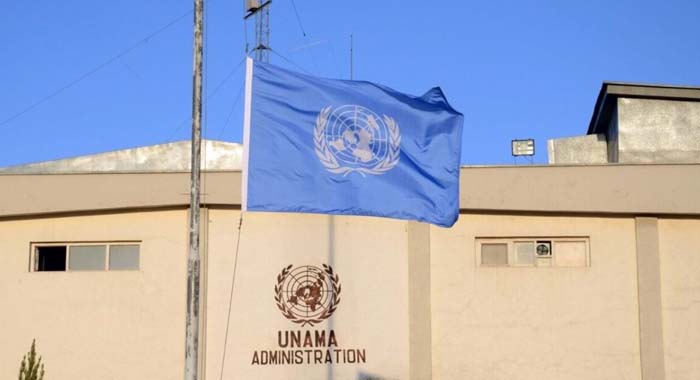In a fresh assault on women’s rights and international norms, Taliban authorities have barred women from entering United Nations compounds in Kabul since Sunday, according to multiple UN sources. The move has drawn alarm within humanitarian circles, with fears that the restrictions may soon extend to other Afghan cities, severely undermining relief operations.
Witnesses confirmed that on Sunday morning, Taliban guards stationed at the UN Office Complex in Afghanistan (UNOCA) stopped female employees and visitors around 8 a.m., ordering women already inside the compound to leave immediately. A day later, on Monday, Sept. 8, Taliban personnel again blocked women from entering the UN’s Baron compound near Kabul airport.
The order, insiders revealed, was issued by the Taliban’s so-called Ministry for the Promotion of Virtue and Prevention of Vice under direct instructions from the group’s reclusive supreme leader, Hibatullah Akhundzada. Neither the Taliban nor the United Nations has yet issued an official statement on the ban.
This is not the first time the Taliban have moved against the UN’s female workforce. In April 2023, the regime ordered all Afghan women employed with the UN to stop working — a directive UN officials warned could paralyze humanitarian operations across Afghanistan, where millions depend on international aid for survival. Since then, reports have steadily surfaced of women being barred from UN offices in various provinces. The latest action in Kabul signals a new and dangerous escalation.
Humanitarian experts warn that excluding women from the UN compounds is more than an administrative measure — it threatens the very functioning of international aid delivery. In a country where women and children make up the majority of those in need, banning female staff not only cripples outreach but also violates the principle of impartiality on which the UN’s mission rests.
Rights groups have denounced the move as part of the Taliban’s wider policy of “gender apartheid,” which has already banned Afghan women from education, employment, and public spaces. Analysts stress that targeting the UN — one of the last international institutions still operating inside Afghanistan underscores the Taliban’s disregard for global conventions and its determination to erase women from every sphere of life.
Observers fear that if the restrictions are expanded to other major cities such as Herat and Mazar-i-Sharif, Afghanistan’s fragile humanitarian lifeline could collapse altogether, leaving millions of vulnerable Afghans without critical support.
The international community now faces mounting pressure to respond decisively. As one aid official put it: “If the Taliban can bar women from even the UN’s compounds, then no commitment or international standard is safe under their rule.”





